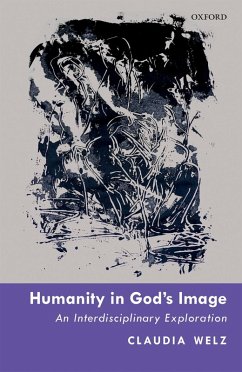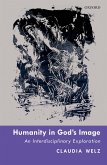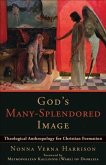How can we, in our times, understand the biblical concept that human beings have been created in the image of an invisible God? This is a perennial but increasingly pressing question that lies at the heart of theological anthropology. Humanity in God's Image: An Interdisciplinary Exploration clarifies the meaning of this concept, traces different Jewish and Christian interpretations of being created in God's image, and reconsiders the significance of the imago Dei in a post-Holocaust context. As normative, counter-factual notions, human dignity and the imago Dei challenge us to see more. Claudia Welz offers an interdisciplinary exploration of theological and ethical 'visions' of the invisible. By analysing poetry and art, Welz exemplifies human self-understanding in the interface between the visual and the linguistic. The content of the imago Dei cannot be defined apart from the image carrier: an embodied creature. Compared to verbal, visual, and mental images, how does this creature as a 'living image' refer to God-like a metaphor, a mimetic mirror, or an elusive trace? Combining hermeneutical and phenomenological perspectives with philosophy of religion and philosophy of language, semiotics, art history, and literary studies, Welz regards the imago Dei as a complex sign that is at once iconic, indexical, and symbolical-pointing beyond itself.
Dieser Download kann aus rechtlichen Gründen nur mit Rechnungsadresse in A, B, BG, CY, CZ, D, DK, EW, E, FIN, F, GR, HR, H, IRL, I, LT, L, LR, M, NL, PL, P, R, S, SLO, SK ausgeliefert werden.









